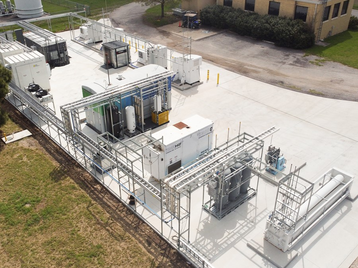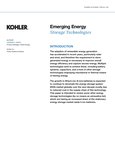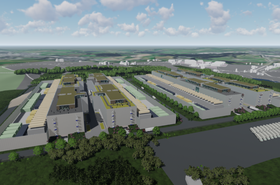A hydrogen demonstration facility has launched in Austin, Texas. It will help provide power to the Texas Advanced Computing Center (TACC) data center via a fuel cell.
Part of the US Department of Energy (DOE)'s H2@Scale initiative, the facility is designed as a model for future large-scale hydrogen development, showcasing an ‘integrated hydrogen ecosystem’ for production, distribution, storage, and use.
The project – located at the University of Texas (UT) J.J. Pickle Research Campus in Austin – is a collaboration between GTI Energy and its subsidiary Frontier Energy, the UT Center for Electromechanics, and nearly two dozen industry stakeholders.
The site will generate hydrogen using water electrolysis powered by solar and wind energy, as well as steam methane reformation via natural gas from landfills.
According to UT, the primary end user will be TACC through a stationary fuel cell power system that will provide energy to the data center. The hydrogen site will also fuel a fleet of Toyota Mirai fuel-cell electric vehicles and fuel-cell drones.
“H2@Scale in Texas builds on nearly two decades of UT leadership in hydrogen research and development. With this facility, we aim to provide the educated workforce and the engineering data needed for success,” said Michael Lewis, research scientist at the UT Austin Center for Electromechanics. “Beyond the current project, the hydrogen research facility is well-positioned for growth and impact in the emerging clean hydrogen industry.”
Founded in 2001, TACC hosts several supercomputers including Frontera, Stampede3, Maverick2, JetStream2, and Lonestar6. The company recently announced plans for a new Nvidia-based cluster known as Vista.
Launched in 2020, the DOE’s H2@Scale project aims to develop and demonstrate paths to renewable hydrogen as a clean and cost-effective fuel.
“We launched the H2@Scale initiative with our labs years ago to pave the way for pilot projects that help advance both clean hydrogen innovation and scale-up,” said Sunita Satyapal, director of the DOE Hydrogen and Fuel Cell Technologies Office, and hydrogen program coordinator.
“I am so pleased to see this project underway to help guide future larger-scale clean hydrogen deployments and make progress on America’s clean hydrogen strategy.”
Industry partners include Air Liquide, CenterPoint Energy, Chart Industries, Chevron, ConocoPhillips, Hitachi Energy, Low-Carbon Resources Initiative, McDermott, Mitsubishi Heavy Industries America, OneH2, ONE Gas, ONEOK, Shell, SoCalGas, Texas Commission on Environmental Quality, Toyota, and WM.
“Through public-private partnerships enabled by H2@Scale, DOE continues to build on its role as an accelerator for the collaborative early-stage research, development, and demonstrations needed for effective energy system transitions,” said Paula Gant, president and CEO, GTI Energy.
“By demonstrating a fully integrated hydrogen ecosystem, H2@Scale is a proving ground for the powerful potential of large-scale Regional Clean Hydrogen Hubs in building a robust hydrogen economy in ways that benefit local communities whether through skilled job creation, cleaner air or strengthened energy access.”
In a recent report, UT noted Texas is well placed for hydrogen-based energy, boasting “significant existing hydrogen infrastructure,” including more than 900 miles of hydrogen pipelines.







